Ferdinand de Lesseps was born on 19 November 1805 into a family of French career-diplomats. He went into the same profession, and during his early career was posted to Tunisia and Egypt. In Egypt, he became friends with Said Pasha, son of the viceroy. De Lesseps became fascinated with the cultures of the Mediterranean and Middle East and the growth of western European trade. After postings to Spain and Italy, in 1849 he retired after a disagreement with the French government. In 1854, his friend Said Pasha became the new viceroy of Egypt. De Lesseps immediately returned to Egypt, where he was given a warm welcome and, soon afterwards, permission to begin work on the Suez Canal. De Lesseps had been inspired by reading about Napoleon's abandoned plans for a canal that would allow large ships wishing to sail to the east to go directly from the Mediterranean to the Red Sea, thereby cutting out the long sea journey around Africa.
De Lesseps' scheme was backed by an international commission of engineers, but failed to win the support of the British government, despite de Lesseps making a number of trips to London. He persevered and eventually attracted financial backing from the French emperor Napoleon III and others. De Lesseps was no engineer - his achievement lay in organising the necessary political and financial backing, and providing the technical support necessary for such a huge project. Construction began in April 1859, and the Suez Canal was opened in November 1869. British attitudes changed when the canal was seen to be a success and de Lesseps was treated as a great celebrity on his subsequent visit to Britain. In 1875, the Egyptian government sold its shares in the canal and the British prime minister, Benjamin Disraeli, bought effective control of the Canal Company.
In his 74th year, de Lesseps began to plan a new canal in Panama. In 1879, an international congress was held in Paris, which chose the route for the Panama Canal and appointed de Lesseps as leader of the undertaking. Work began in 1881, but the canal proved much more complicated to build than the Suez Canal. After eight years, little progress appeared to have been made (it was eventually finished in 1914). A French court found de Lesseps and his son Charles guilty of mismanagement. Both were heavily fined and sentenced to imprisonment. In the event, de Lesseps did not go to jail, but his son paid for his elderly father's misjudgements with a year in prison. De Lesseps died on 7 December 1894.

HellIsForHeroes_1.jpg)
 During an interlude at a church and later at a tavern, the senior non-commissioned officer, Technical Sergeant Pike (Fess Parker),
During an interlude at a church and later at a tavern, the senior non-commissioned officer, Technical Sergeant Pike (Fess Parker),  happens upon former fellow sergeant, now Private, John Reese (Steve McQueen). Reese is the quintessential troubled loner, managing to alienate himself from almost everyone in the squad right from the beginning.
happens upon former fellow sergeant, now Private, John Reese (Steve McQueen). Reese is the quintessential troubled loner, managing to alienate himself from almost everyone in the squad right from the beginning. The company commander, Captain Loomis (Joseph Hoover), is worried because Reese goes crazy when
The company commander, Captain Loomis (Joseph Hoover), is worried because Reese goes crazy when there is no fighting, but Pike comments that he is a good soldier in combat.
there is no fighting, but Pike comments that he is a good soldier in combat.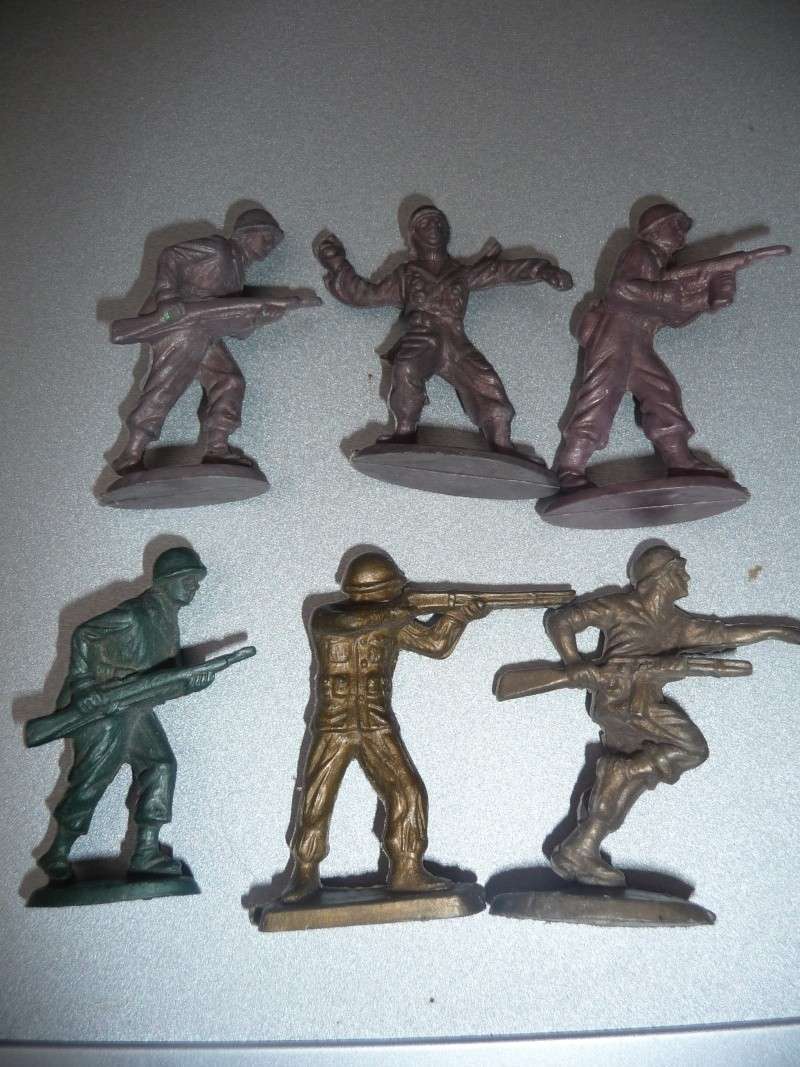
 , the mechanic-who-can-fix-anything Corporal Henshaw (James Coburn), the easy-going, somewhat-naive kid, Cumberly (Bill Mullikin), Polish refugee Homer Janeczek (Nick Adams),
, the mechanic-who-can-fix-anything Corporal Henshaw (James Coburn), the easy-going, somewhat-naive kid, Cumberly (Bill Mullikin), Polish refugee Homer Janeczek (Nick Adams), and family man Kolinsky (Mike Kellin). The morning after they arrive at their appointed post and dig in, the men realize they are spread so thin that any reconnaissance by the Germans will quickly reveal how weak the American defenses are.
and family man Kolinsky (Mike Kellin). The morning after they arrive at their appointed post and dig in, the men realize they are spread so thin that any reconnaissance by the Germans will quickly reveal how weak the American defenses are.
 Henshaw rig it to backfire and sound like a tank. Driscoll himself is put to use improvising misleading radio messages for a hidden microphone left by the Germans in an abandoned pillbox (Newhart was noted for his telephone conversation skits in his stand-up comedy routines).
Henshaw rig it to backfire and sound like a tank. Driscoll himself is put to use improvising misleading radio messages for a hidden microphone left by the Germans in an abandoned pillbox (Newhart was noted for his telephone conversation skits in his stand-up comedy routines).
 . Larkin decides to go find some help and see if he can get permission from Pike for the attack, but is killed by artillery. Reese decides to proceed without orders and persuades the others to go along. The attack fails, with Henshaw fatally burned by his exploding
. Larkin decides to go find some help and see if he can get permission from Pike for the attack, but is killed by artillery. Reese decides to proceed without orders and persuades the others to go along. The attack fails, with Henshaw fatally burned by his exploding 
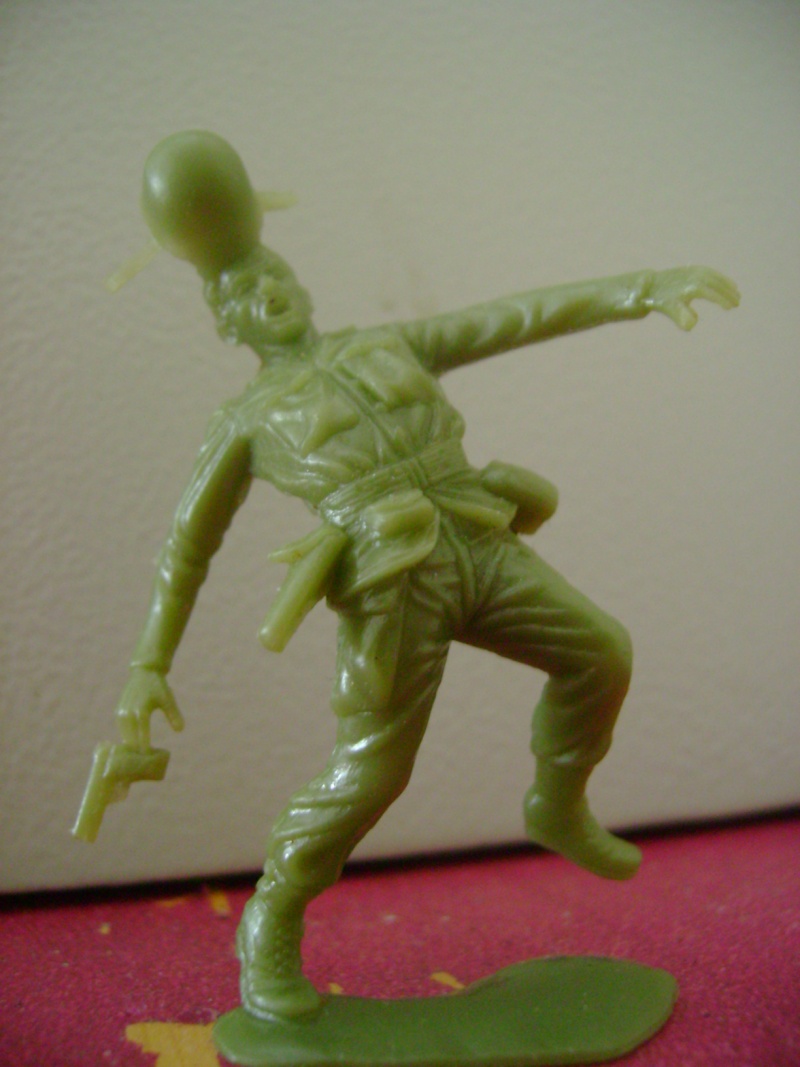
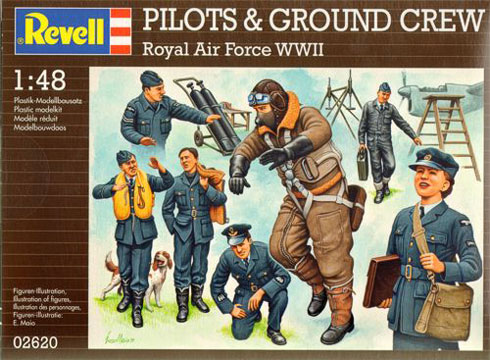 altering the names of characters and events but retaining its basic framework. It stars Steve McQueen, Robert Wagner, Shirley Anne Field, Ed Bishop and features a young Michael Crawford.
altering the names of characters and events but retaining its basic framework. It stars Steve McQueen, Robert Wagner, Shirley Anne Field, Ed Bishop and features a young Michael Crawford.


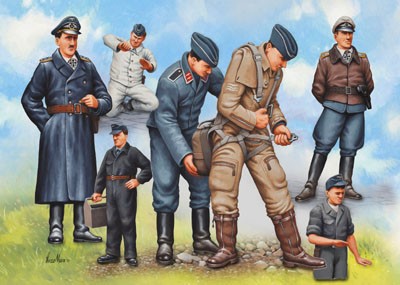 the cost of one of the bombers in his squadron and its entire crew. Rickson revels in the fighting and
the cost of one of the bombers in his squadron and its entire crew. Rickson revels in the fighting and 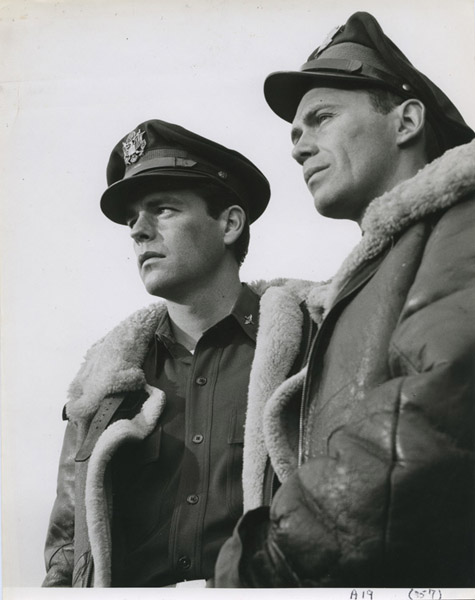 destruction; when he is assigned to drop propaganda leaflets, he makes his displeasure felt by buzzing the airfield. His commanding officer tolerates his repeated insubordination because he is the best pilot in the bomber group.
destruction; when he is assigned to drop propaganda leaflets, he makes his displeasure felt by buzzing the airfield. His commanding officer tolerates his repeated insubordination because he is the best pilot in the bomber group.  Even so, when he asks the flight surgeon his opinion, the latter is uncertain whether Rickson is a hero or a psychopath. However, Rickson's crew trusts his great flying skill, especially his co-pilot Lieutenant Ed Bolland (Robert Wagner).
Even so, when he asks the flight surgeon his opinion, the latter is uncertain whether Rickson is a hero or a psychopath. However, Rickson's crew trusts his great flying skill, especially his co-pilot Lieutenant Ed Bolland (Robert Wagner).
 They soon begin sleeping together. She falls in love with him, though she suspects he will leave her behind and return to America at the end of his tour of duty.
They soon begin sleeping together. She falls in love with him, though she suspects he will leave her behind and return to America at the end of his tour of duty.

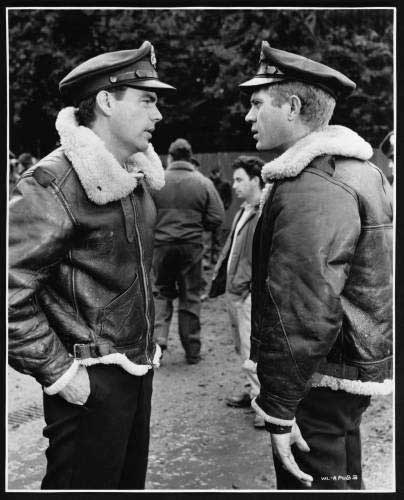

 out of his depth and a tougher subordinate who threatens to do away with him. As the official trailer put it: "Not every gun is pointed at the enemy
out of his depth and a tougher subordinate who threatens to do away with him. As the official trailer put it: "Not every gun is pointed at the enemy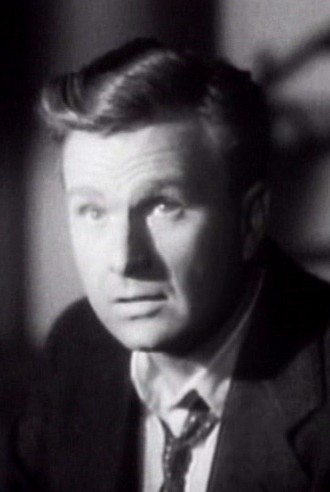
 unnecessary loss of life is causing morale problems among the troops and trying the patience of Platoon Leader Lt. Joe Costa (Jack Palance), a bold and brave fighter and a natural leader of men. The Executive Officer, Lt. Harold Woodruff (William
unnecessary loss of life is causing morale problems among the troops and trying the patience of Platoon Leader Lt. Joe Costa (Jack Palance), a bold and brave fighter and a natural leader of men. The Executive Officer, Lt. Harold Woodruff (William  Smithers, in his first credited screen role) is the "voice of reason" who tries to keep the peace between Cooney and Costa. Both he and Costa are respected by the enlisted troops. While Woodruff tries to get Cooney re-assigned to a desk job behind the
Smithers, in his first credited screen role) is the "voice of reason" who tries to keep the peace between Cooney and Costa. Both he and Costa are respected by the enlisted troops. While Woodruff tries to get Cooney re-assigned to a desk job behind the 
 political ambitions and it all depends on his and Erskine's war records. Neither Captain Erskine Cooney nor Bartlett are liked by the company: as Pfc. Bernstein (Robert Strauss) puts it: "When you salute them two, you have to apologize to your arm."
political ambitions and it all depends on his and Erskine's war records. Neither Captain Erskine Cooney nor Bartlett are liked by the company: as Pfc. Bernstein (Robert Strauss) puts it: "When you salute them two, you have to apologize to your arm."

 farmhouse but find themselves under siege. When Costa calls for reinforcements, Cooney snaps, ignores the pressure from Woodruff to go in and turns to drink. A little strategy and deception enables Costa and his men to hold up but when panzers appear he has no choice but to call a retreat. He furiously tells Woodruff over the radio to warn Cooney that he's "coming back!"
farmhouse but find themselves under siege. When Costa calls for reinforcements, Cooney snaps, ignores the pressure from Woodruff to go in and turns to drink. A little strategy and deception enables Costa and his men to hold up but when panzers appear he has no choice but to call a retreat. He furiously tells Woodruff over the radio to warn Cooney that he's "coming back!"
 and Cooney that they must hold their present position in spite of the German advance. Woodruff warns Bartlett that he is going to lodge a complaint with General Parsons, the Colonel's superior, over the handling of the company. With the pressure building, Cooney breaks down, telling Woodruff about having been beaten by his father in order to "make a man" out of him. Bartlett has told him that he is in command "as a favor to the judge. He's always wanted a son, now I'm trying to give him one." Feeling sorry for Cooney, Woodruff tells him to sleep it off and is about to assume command when Costa suddenly reappears, determined to kill Cooney. As they argue, they are told that the town is being overrun by Germans. Costa grabs a Bazooka and bravely disables a tank, only to have his arm crushed by its treads.
and Cooney that they must hold their present position in spite of the German advance. Woodruff warns Bartlett that he is going to lodge a complaint with General Parsons, the Colonel's superior, over the handling of the company. With the pressure building, Cooney breaks down, telling Woodruff about having been beaten by his father in order to "make a man" out of him. Bartlett has told him that he is in command "as a favor to the judge. He's always wanted a son, now I'm trying to give him one." Feeling sorry for Cooney, Woodruff tells him to sleep it off and is about to assume command when Costa suddenly reappears, determined to kill Cooney. As they argue, they are told that the town is being overrun by Germans. Costa grabs a Bazooka and bravely disables a tank, only to have his arm crushed by its treads.

.jpg)

 Jack Palance as Lt. Joe Costa
Jack Palance as Lt. Joe Costa





